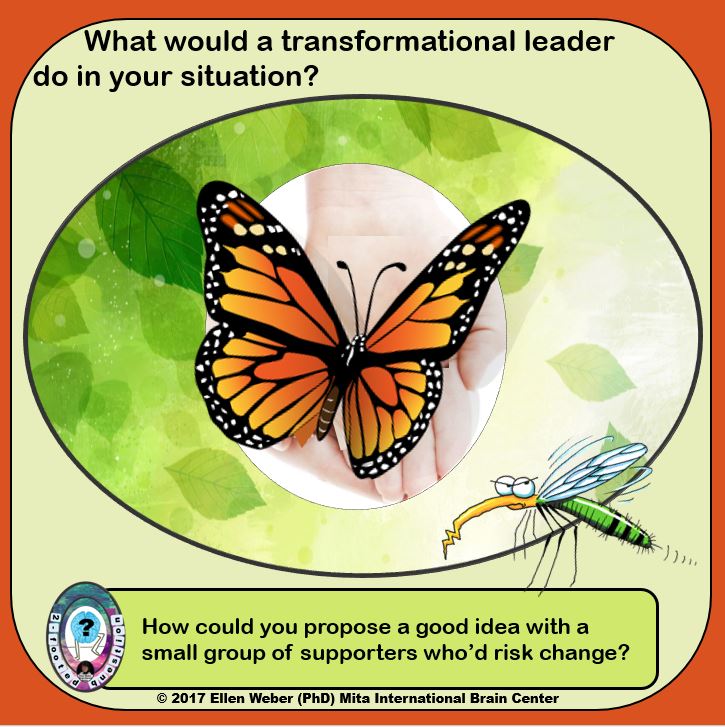Many heroic nurses who help us all survive medical challenges, currently face increasing barriers to wellbeing in their field. Remember when Barak Obama’s youngest child suffered Meningitis and he raved about nursing care that restored her health? Now, just a few years later the entire nursing profession as we’ve valued it is in stark need of reconfiguration. One key global crisis – nurses continue to drop out at alarming rates, and with good reason.
My own interest in the nursing crisis comes from medical colleagues and especially nursing faculty that I certify in brain based practices at university.
One dean put it this way, “Fast growing problems in broken nursing systems could leave AIG and GM looking like world winners by comparison.” It doesn’t need to be that way.
 Yet daily we still see medical disasters due to a broken system and disheartened medical professionals. It’s estimated 300,000 pre-mature deaths occur yearly, because of overwhelmed medical professionals, according to Faye Slattery. Growing medical professional problems impact us all, regardless of our profession. Medical researcher, Slattery, wrote the book, Where Have all the Nurses Gone? to show shocking health disasters as a result of a toxic, broken medical system.
Yet daily we still see medical disasters due to a broken system and disheartened medical professionals. It’s estimated 300,000 pre-mature deaths occur yearly, because of overwhelmed medical professionals, according to Faye Slattery. Growing medical professional problems impact us all, regardless of our profession. Medical researcher, Slattery, wrote the book, Where Have all the Nurses Gone? to show shocking health disasters as a result of a toxic, broken medical system.
Are health insurance companies such as BlueCross BlueShield at fault here? Not sure, but the medical field is so bad, that nurses warn others to avoid the profession altogether. A 2002 survey of nurses conducted by the American Nursing Association revealed that more than half did not recommend nursing profession to their friends. What happened to the passion and purpose that used to accompany this pivotal field? More importantly, what can be done to renew and rebuild?
One study published in Health Affairs in October, 2002, shows more than 40% of nurses dissatisfied with their jobs. No wonder they’re disappearing in droves! Furthermore, time is running out! Another study in the Journal of the American Medical Association, for instance, predicts that by year 2020, 400,000 more nurses will be needed than are now available. So what’s the solution?

Imagine a progressive university or health professional development organization, that uses research to turnaround nurse education programs! Visualize one transformational leader who would risk exchanging current health crisis for care of nurses and their clients. I’m convinced that the nursing field is ripe for just such dynamic transformational outcomes that could more than meet changing horizons in the medical field. Could it happen in your community?
See this article reprinted recently in Chicago Sun Times.
It starts with progressive professionals creating a vision, just as nurse faculty in Ireland recently published in Nurse Education Today. Next, a robust visionary will lead the charge to inspire others with new opportunities in a reconfigured system as European nurse leaders published in ScienceDirect.
The Mita brain based pathways and tactics we’ve used also draw collaboratively from an entire circle of nurses who commit to building innovative practices. Can you see a new prototype emerge that will attract top nurses and nurse entrepreneurs globally? A new climate for high performance minds, that sustains success through deep and passionate commitment that nurses typically add to health care?
In one brain conference, we implemented an intervention program that acted as a bulwark between ruts and rejuvenation. We designed brain based innovations that yielded measurable performance improvement. How so?
Here’s the skinny. One nurse director described an emergency department with low morale and constant complaints that detracted from a keen focus on patient care. From the time she opened her office until she locked it late at night, staff complained about everything from a lack of dollars to an abundance of frustrations at work.
This nurse director designed and implemented a successful brain based innovation that moved the group from cortisol toxins to serotonin kindness. Part of the innovation declared that no staff member would no longer be permitted to complain about a problem in her office, unless that complaint was accompanied by a proposed solution led by the staff member who complained. this brain based intervention worked wonders to facilitate an energized circle of colleagues who pulled together for finer outcomes.
Could you imagine a global turnaround through newly defined nursing roles that enrich the entire medical field?
 Good news, the entire nursing profession awaits healthier pathways to reach new peaks. The moment is now! What would it take to support and re-energize those nurses in trenches where you live?
Good news, the entire nursing profession awaits healthier pathways to reach new peaks. The moment is now! What would it take to support and re-energize those nurses in trenches where you live?
YOUR TURN! Join our Brain Based Circles! Would love to meet you at any of the following!
Brain Leaders and Learners Blog
Mita Brain Center Facebook
efweber on Pinterest
@ellenfweber on Twitter
ellenfweber on Instagram
Ellen Weber on Google+
Ellen Weber on LinkedIn
Created by Ellen Weber, Brain Based Tasks for Growth Mindset
Lynn is correct. We have not enjoyed, as a profession, the degree of federal financial support that our colleagues in medicine have had. As demands on nurse educators and nursing programs increase, the federal dollars and the TIME to properly educate professional nurses have not proportionally increased. Instead, faculty are under constant pressure to “produce” more nurses in less time. Medical organizations have, in fact, spoken out against higher education for nurses, as if that is part of the health care problem. Nurses have tirelessly fought hegemony to take our rightful place as a distinct health discipline. We have a vision, we have the methods, but we lack the resources to realize that vision.
Pingback: Call for Simplicity that Adds Intelligence – Brain Leaders and Learners
Lynn, your own marks in the field restore confidence and inspire the rest of us. There is a deep move in some circles to create an entrepreneurship of nursing. In that movement — perhaps there could be a better balance of pay and incentives to attract the best nurse educators.
I so support you and look forward to leaders like you transforming the field to help nurses become even more effective by supporting more of who they are!
Nurse educators need a master’s degree to teach nursing at community colleges, and at four-year schools, a Doctor of Science in Nursing or a Nursing Ph.D. is preferred. Yet, schools that focus on nurse educators are very limited.
Also consider that someone can make a good living as a nurse (if they can get into a program) and choose not to take on the great financial burden of heaindg to graduate programs to become an educator. Perhaps we need to offer more scholarships, grants, etc. or at least make the financial help available more “known” to the nursing community — so that we can push them to continue to this level.
Obviously, offering greater pay to nursing educators would be a key incentive as well. I believe registered nurses make anywhere from $10 – $25 k more a year than nursing educators.
The health care industry should develop more robust recruiting campaigns for nurse educators as well.
Thank you for the opportunity to discuss.
Lynn, since you have sorted out the issues – it makes it far easier to see where a few of the solutions could start. What would you recommend to gain more nurse educators, and what sort of higher education courses would inspire a stronger nurse community moving forward for the changing times? Thoughts?
I think there are a few issues here, rather than just nurses “dropping out.” Nursing can be a lucrative profession and there are takers out there. Here are some of the problems: 1. We have an aging population and therefore, need more nurses. 2. Nurses are part of that aging population so they are retiring. 3. People are paid more to practice nursing than to teach nursing. 4. There aren’t enough people teaching nursing, so class sizes are smaller and applicants are being turned away from nursing schools.
As healthcare is a recession-proof industry, more people will be turning toward the field to secure jobs, but with all of the issues above, it certainly looks like we will fall short of fulfilling the need.
Jd – since you excel in people skills I can see why this fact would concern you, and thanks for speaking for many of us! Hopefully when medical health takes on a new look – nurses will gain the place they deserve! Thanks for saying it so well and reminding us of value at the core!
Having called on hospitals and medical centers for years I often heard of the Nurse dissatisfaction with their jobs. Much of it was caused by Doctors with poor people skills, families that were rude and a general lack of respect. They are under tremendous stress and often do not feel well compensated for their efforts. With a aging society, the nursing shortage is scary!
JDs last blog post..The President’s Gaffe
As usual, you flatter me. Thanks any way. Feels good to be thought of as wise.
Your suggestion that I contribute more interests me. What I shall do, over the next few days is to put my thoughts down on paper and send a separate mail to you to do as you see fit. If you do not hear from me say before this week end, please just shoot off a reminder. I am in the midst of all kinds of things just now and my memory plays tricks on me.
rummusers last blog post..A Journey That Is Totally Personal.
Thanks for stopping by Ramana, and for your thoughtful insights! When I lived in the high arctic for 2 years I saw nurses there offered freedom to do amazing medical work, and it opened my eyes to the caring and intelligent role of nurses. Yet too often the title nurse comes with a sense of less responsibility and therefore less pay.
Seems time to change the name to inspire a new vision of these medically astute health care professionals.
You are so right that the entire medical profession is crying out for change. Yet, I sense you do have amazing wisdom for what that could look like as a viable, caring and intelligent field that cares for professionals and in turn cares for the rest of us. Let’s keep thinking together on this one, OK? Your turn…?
Nursing as a career still is attractive to many Indian women. Primarily because of a career that does not call for too much education, and a highly subsidized training program. There is still shortage for nurses as the fastest growing business is the hospital business, yes, that is what I would like to call it. Add medical tourism as it is called, and you have a rapidly growing field and wages are moving north for nurses at a very rapid rate.
The kind of problems that the US is facing is yet to be felt here, but I visualize it coming very soon. One of the side benefits of the growth here has been a reduction of trained nurses emigrating to the US, apart from a crack down on visas at that end. Many nurses of Indian origin there are advising their kin here about the dangers inherent in the system there, and so that helps too.
I have no solution to the problem. The whole medical profession has to change its attitudes, values and practices to being what it was say about three decades ago. I do not see this happening.
rummusers last blog post..A Tribute To Two Great Doctors.